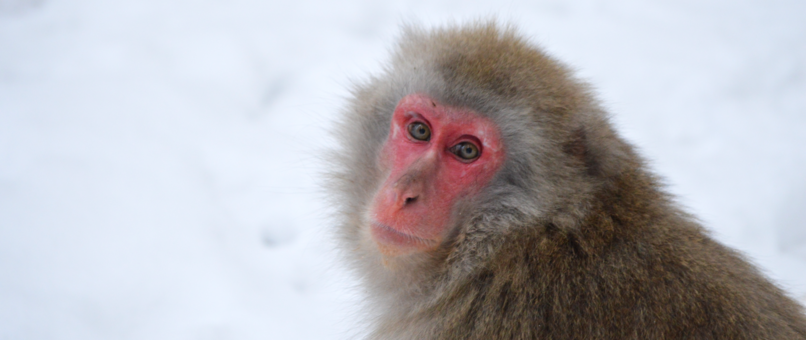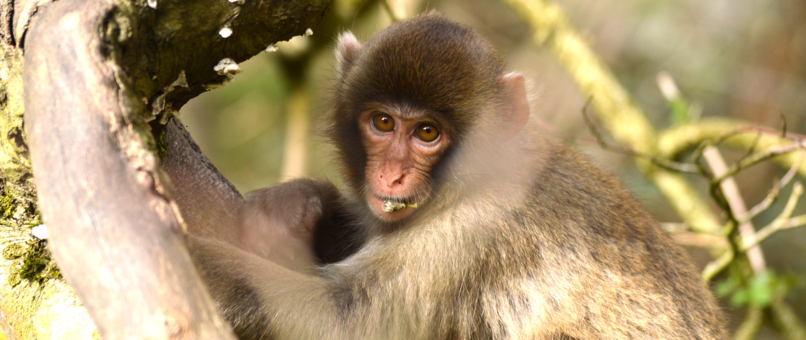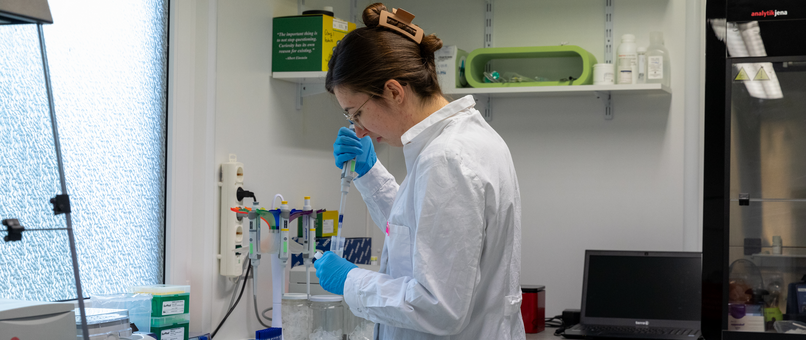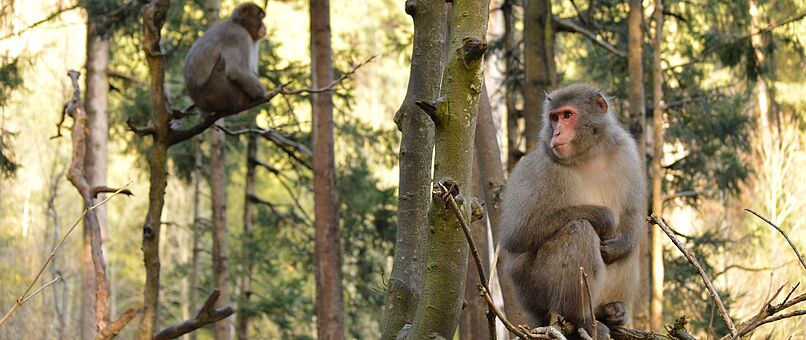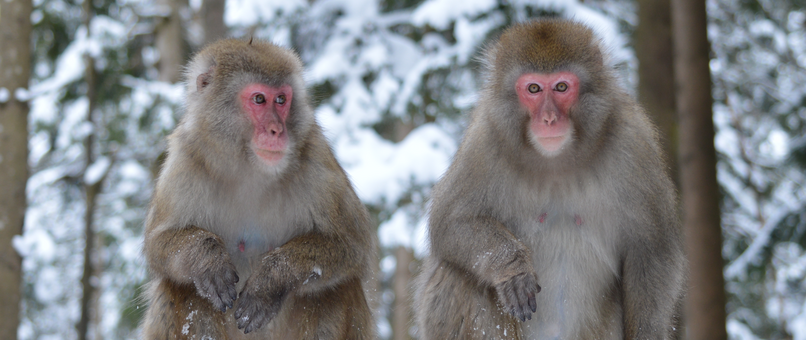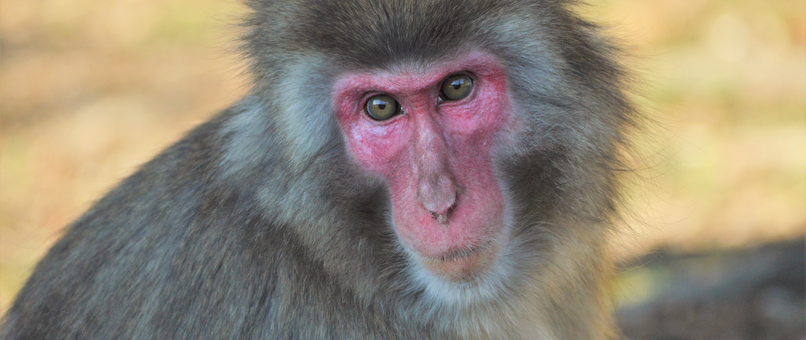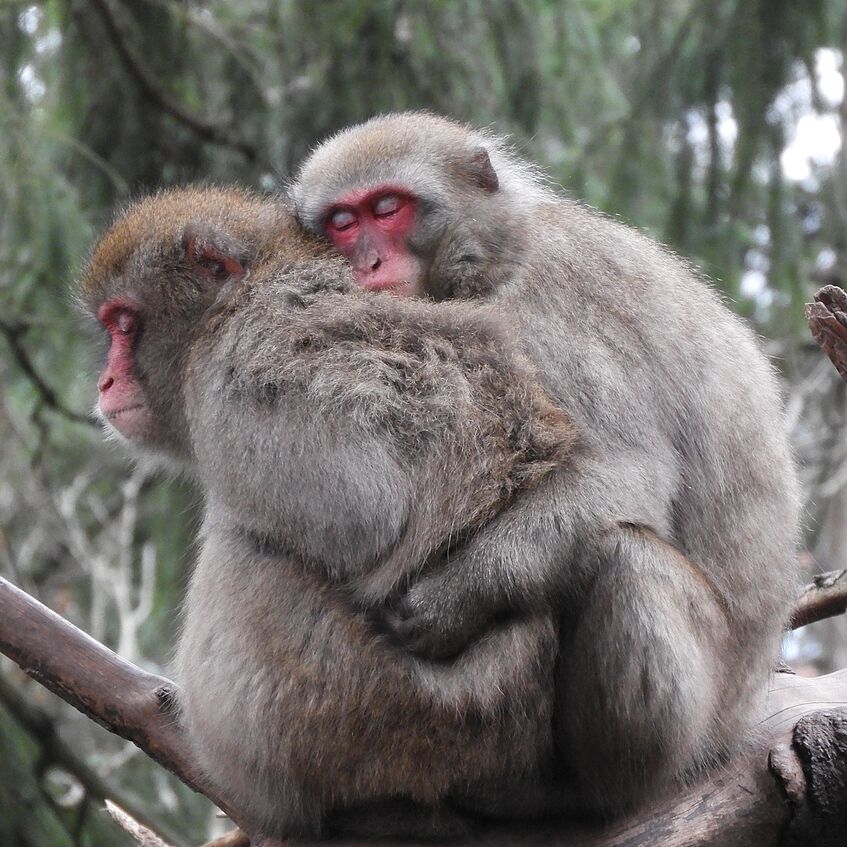We are looking for new students
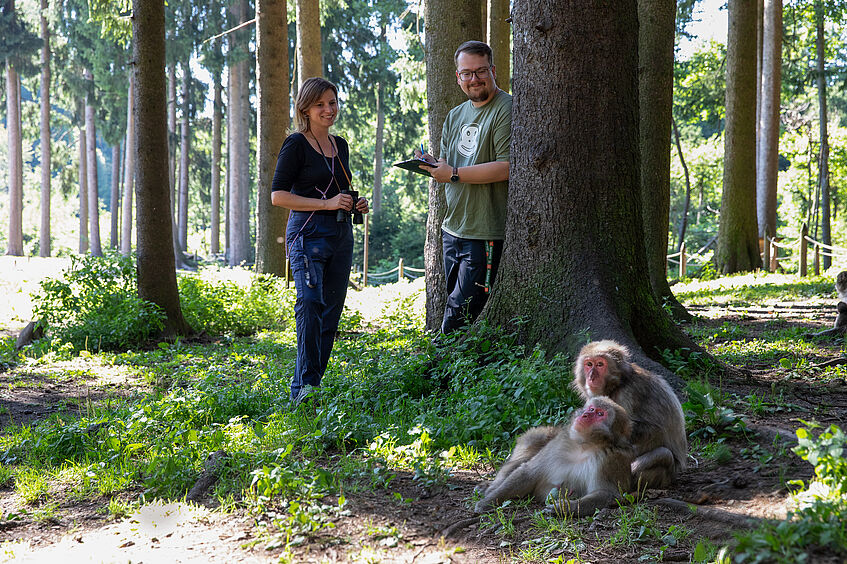
© Jasna Karzić
We are looking for new students
Are you looking for a project for your master thesis and want to gain some fieldwork experience working with primates? We are looking for new students to start their internship from January 2026 onwards. Check out our open projects and join our team.
Science Slam 2025
Communicating scientific findings within a short time to a diverse audience in an easy-to-follow and entertaining way? Roy Hammer took the challenge and presented his project on social aging in Japanese macaques in the form of a science slam. With his slam "What aging in monkeys teaches us: A grandma story" Roy was voted Slam Champion by the crowd both at the 2nd international Science Slam in Villach as well as at the Science Slam Austria 2025 in Graz. Congratulations!
ISHE Summer Institute 2025

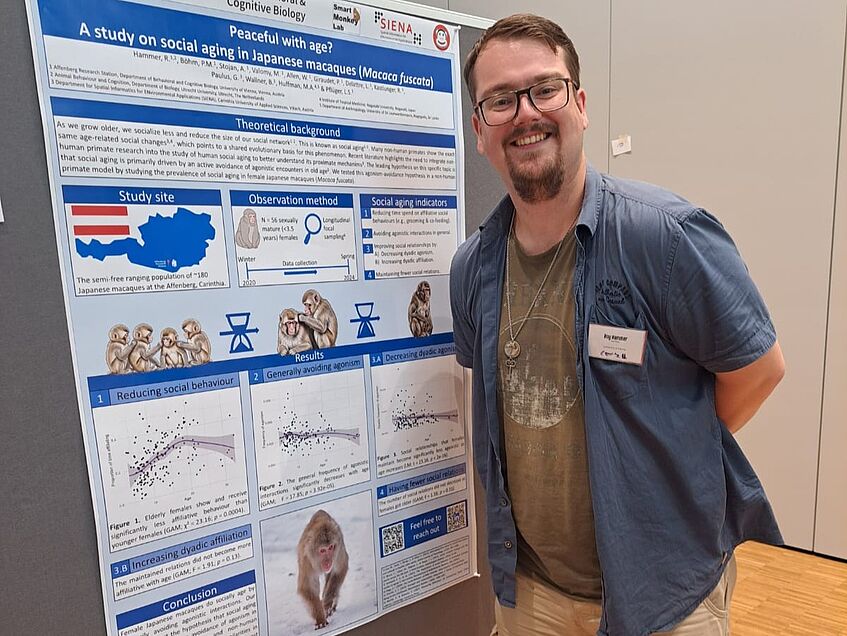
ISHE Summer Institute 2025
The Affenberg Research Station team attended the ISHE Summer Institute 2025 in Vienna, Austria with several contributions. The meeting was kicked off with a keynote on "How to observe behavior" by Pia Böhm and Lena Pflüger.
Participants of the Summer Insitute then joined one of three multi-day workshops - of which one was lead by the Affenberg Research Station team on the topic of "Sexy alpha males or attractive underdogs?". After an introduction into the sexual behavior and mating system of the study species, participants learned behavioural coding techniques in BORIS and coded video recordings of sexual pairs of free-ranging Japanese macaques in Minoo, Japan.
The meeting was closed with a poster session inlcuding several poster contributions from our students. Roy Hammer was one of the two winners for Best Poster Presentations with his poster on social aging in female Japanese macaques - congratulations!
New Paper: No birth-associated maternal mortality in Japanese macaques (Macaca fuscata) despite giving birth to large-headed neonates
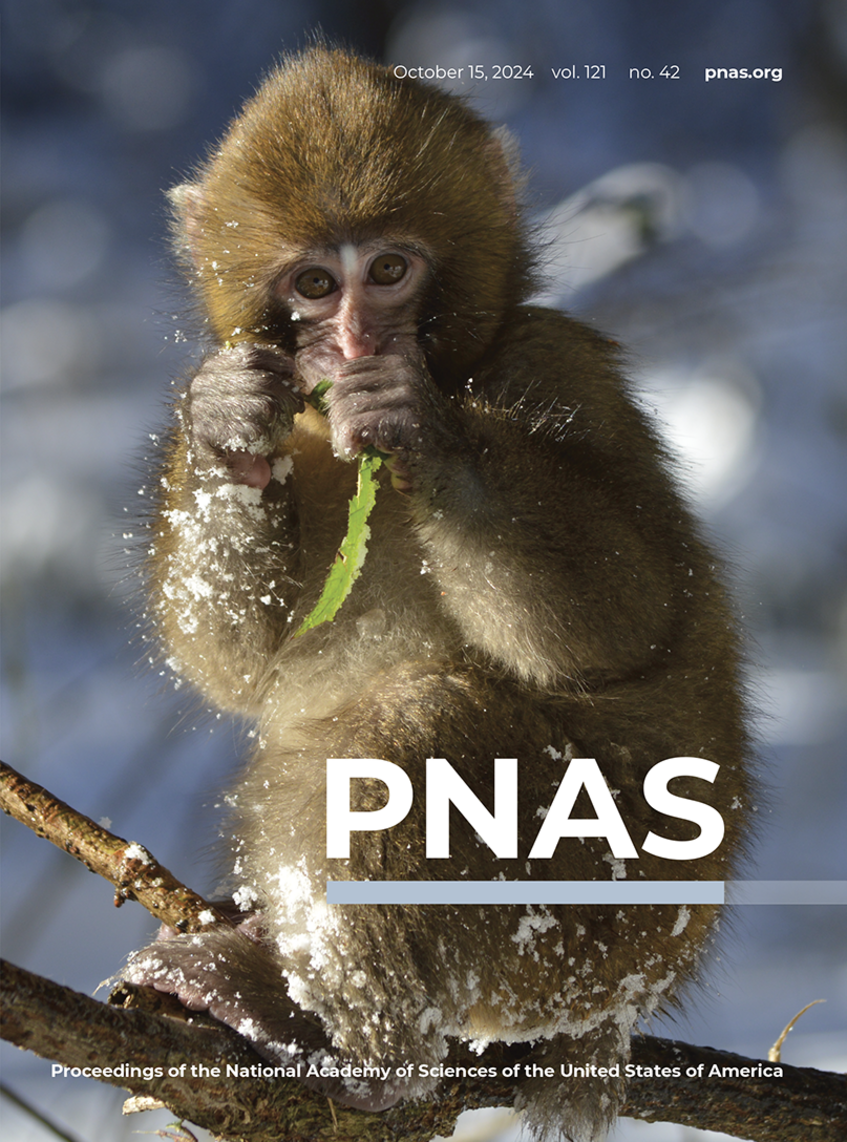
© Angela Stojan
New Paper: No birth-associated maternal mortality in Japanese macaques (Macaca fuscata) despite giving birth to large-headed neonates
Despite the same pelvis-to-head ratio, Japanese macaques do not suffer the same birth complications as humans. An international research team led by the University of Vienna and the Medical University of Vienna has used long-term demographic data from Japanese macaques at the Affenberg Landskron to show that, unlike humans, there is no maternal mortality in these primates linked to childbirth. The results of the study were recently published in the renowned scientific journal PNAS. The team was also honored with the cover's image.
Publication in PNAS
Pink, KE, Fischer, B, Huffmann, MA, Miyabe-Nishiwaki, T, Hashimoto, N, Kaneko, A, Wallner, B & Pflüger, LS (2024). No birth-associated maternal mortality in Japanese macaques (Macaca fuscata) despite giving birth to large-headed neonates. PNAS
Congratulations to Roy Hammer for receiving the Best Lightning Talk Award

Congratulations to Roy Hammer for receiving the Best Lightning Talk Award
The Affenberg Research Station team attended the 10th European Federation for Primatology meeting (EFP 2024) in Lausanne, Switzerland with several contributions. Big congratulations to Roy Hammer for his outstanding performance and winning the best Lightning Talk!
Press conference: Smart Monkey Lab

© Manfred J. Schusser
Press conference: Smart Monkey Lab
The latest interdisciplinary project that takes place at the Affenberg Research Station has been presented on the 21st of March 2024. The Smart Monkey Lab, which is a cooperation between the University of Vienna, the Carinthian University of Applied Sciences (FH Kärnten) and the Affenberg, aims to develop new technological tools to support behavioural biological research as well as test the applicability of Citizen Science in these studies. Funded by the FFG Bridge Research Programme, this project will form the bridge between fundamental research, technological advancement and public engagement.
New Paper: Intense Body Contact Increases Homosexual Pair Bond Stability
The Japanese macaque has become a key species for studying homosexual behavior over recent decades. With this study, we examined behavioral aspects underlying temporal patterns in female-female homosexual consortships. We hypothesized that the stability of consortships (duration and occurrence) is influenced by a pair’s sexual behavior, mutual sexual stimulation, and close affiliative inter-mount behaviors involving high-intensity body contact. The population of Japanese macaques at the Affenberg Landskron was observed over one mating season. Our analyses found that close body contact, rather than grooming or sexual interactions, was correlated with the stability of homosexual consortships.
Publication in Archives of Sexual Behavior
Böhm, PM, Pflüger, LS, Pink, KE, Huffman, MA, Wallner, B (2024). Intense Body Contact Increases Homosexual Pair Bond Stability in Female Japanese Macaques (Macaca fuscata). Arch. Sex. Behav.

